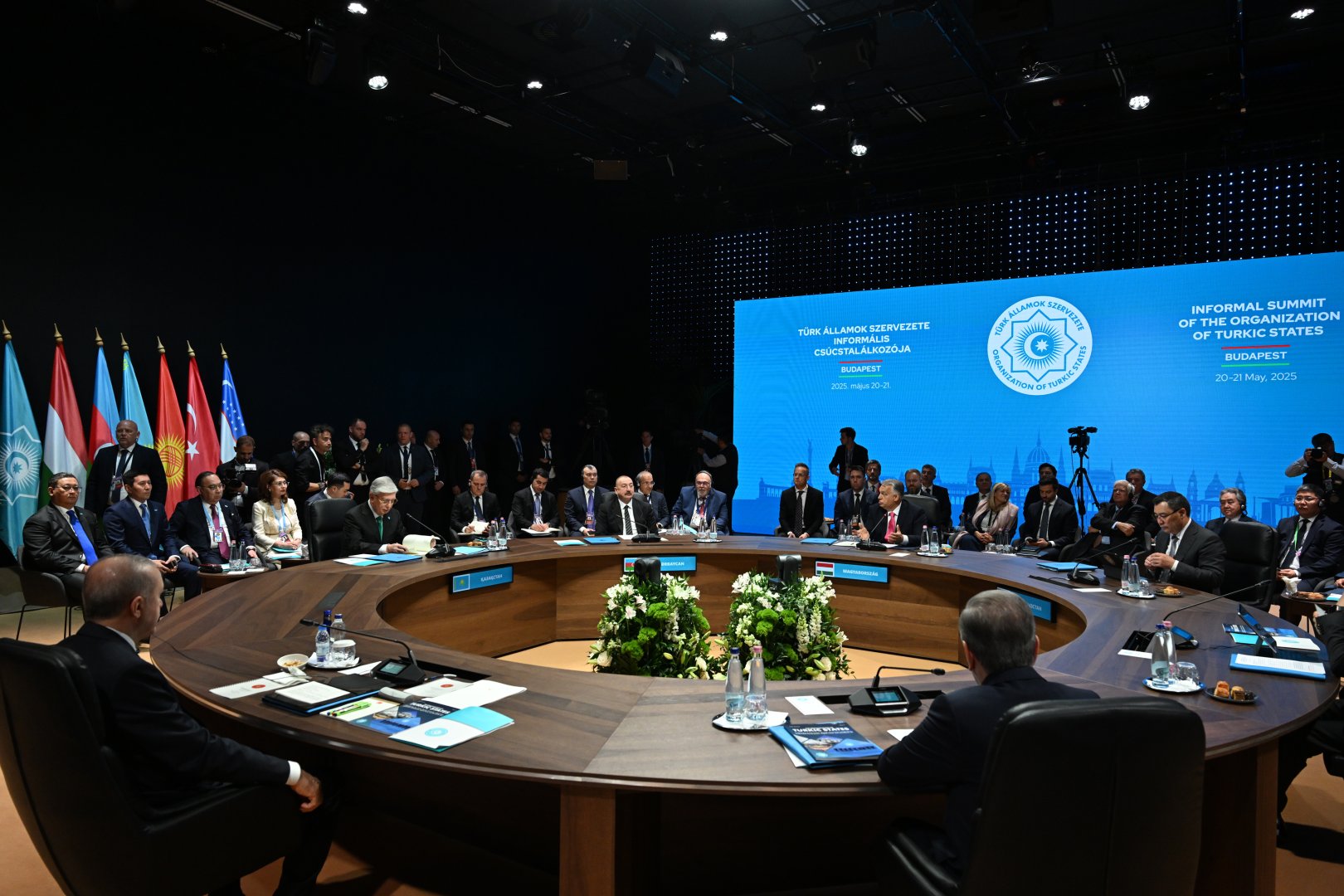BAKU, Azerbaijan, May 22. The informal summit of the Organization of Turkic States (OTS), held on May 21 in Budapest, was more than just another gathering of leaders. It marked a turning point - confirming that the OTS is entering a new phase, with Azerbaijan at the forefront of this transformation.
In his speech at the summit, President Ilham Aliyev clearly laid out Baku’s priorities within the organization - foremost among them: deeper economic integration, stronger transport connectivity, and the creation of a unified infrastructure framework.
The Budapest Declaration, adopted at the summit, offers a practical roadmap for member states: trade facilitation, streamlined customs procedures, and the development of Trans-Caspian routes. These aren’t just lofty goals - they reflect years of systematic effort, much of it driven by Azerbaijan.
Over the past several years, Azerbaijan has made significant investments in transportation infrastructure - building and upgrading roads, railways, the Port of Alat, a shipbuilding plant, and airports.
These efforts are already delivering results. As President Ilham Aliyev noted in Budapest, despite being a landlocked country, Azerbaijan has become one of the transport and logistics hubs in Eurasia. "Our cooperation with the Turkic states in the transport sector is enhancing," he said, highlighting that in 2024 alone, 11 million tons of cargo from Türkiye and Central Asia passed through Azerbaijan.
Azerbaijan continues to build the infrastructure that positions it as a vital link on the Eurasian map. Its rapidly developing aviation sector is another sign of this strategic approach - with eight international airports already in operation and a ninth nearing completion.
Ten new vessels are currently under construction at the Baku Shipyard, and the country’s Caspian fleet already numbers more than 50 commercial ships. Alat is fast becoming the region’s maritime gateway - soon, its capacity will grow from 15 to 25 million tons. Meanwhile, the Baku-Tbilisi-Kars railway - a core route of the Middle Corridor - is now capable of transporting up to 5 million tons annually thanks to Azerbaijani investments.
All of this fits into a broader vision: to transform the Middle Corridor from a simple trade route into a high-tech artery for the Turkic world - featuring digital platforms, faster documentation, and seamless logistics. "Work is underway on a project for a single digital platform to streamline transport operations and trade between the Caspian ports," President Ilham Aliyev noted.
Energy also featured prominently at the summit. Kazakhstan’s President Kassym-Jomart Tokayev emphasized the need to diversify supply chains for oil, gas, and uranium - and thanked President Ilham Aliyev for supporting Astana’s efforts in this area.
Hungarian Prime Minister Viktor Orbán echoed these sentiments: "I would like to thank President of Azerbaijan for the fact that last year Hungary received Azerbaijani gas for the first time. We’re also grateful that major Hungarian companies have been given the chance to join energy projects in Azerbaijan".
Today, Azerbaijan exports natural gas to 12 countries - 10 of them in Europe, including 8 EU members. The European Commission has called Azerbaijan a reliable partner and a supplier of strategic importance. The country’s growing export footprint speaks volumes - Baku is solidifying its place as a global energy player.
Azerbaijan is not only strengthening ties within the OTS - it’s doing so strategically, through investments, joint ventures, and economic partnerships. The total value of Azerbaijani investments in fellow OTS economies now exceeds $20 billion.
This year, the Turkic Investment Fund is expected to launch - a potentially game-changing financial mechanism for the region. Azerbaijan is set to play a leading role here too, acting as a catalyst for initiatives that turn political declarations into real-world projects.
Azerbaijan is also preparing to host the upcoming official OTS summit - an event that’s attracting significant attention. It may be in Baku that a strategic partnership agreement among Turkic states is signed - a proposal put forward by Uzbekistan’s President Shavkat Mirziyoyev, who said: "Signing this agreement in Baku would mark an important step toward strengthening the unity of the Turkic world".
For Azerbaijan, the summit is another chance to show that it is not just a member of the OTS, but one of its key architects.
The Budapest summit also underscored the significance of Hungary - both as an OTS observer and an EU member. Hungary is emerging as a bridge between Brussels and Baku, between the European Union and the Turkic world.
"If we relied solely on Europe’s economic potential, without taking into account the opportunities presented by the OTS, the Hungarian economy would be in serious trouble," Orbán said at the summit’s opening. His remarks speak volumes about the OTS’s growing relevance - and the central role Azerbaijan plays in connecting East and West.
Azerbaijan isn’t just strengthening bilateral relations with fellow Turkic states. It’s shaping a new regional architecture - grounded in its own energy resources, transportation links, digital solutions, and financial institutions.
It is this ambitious, long-term vision that makes Azerbaijan not only a critical member of the OTS, but a driving force behind its emergence as a global power.







